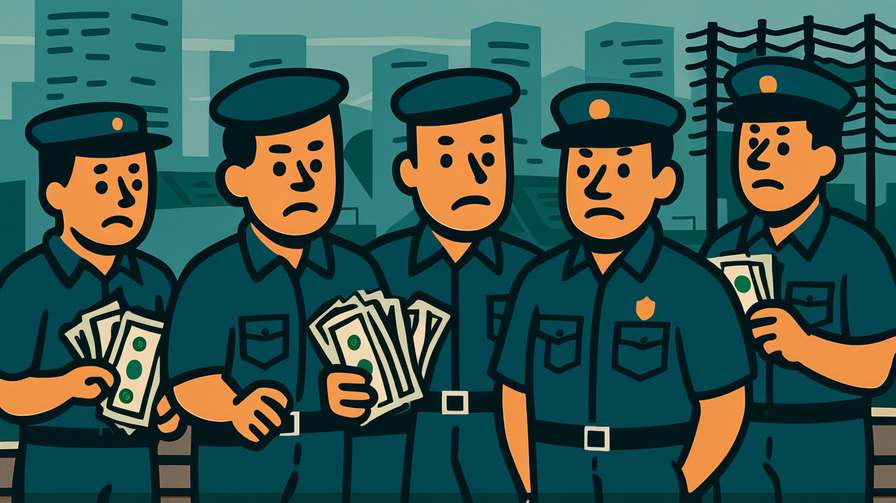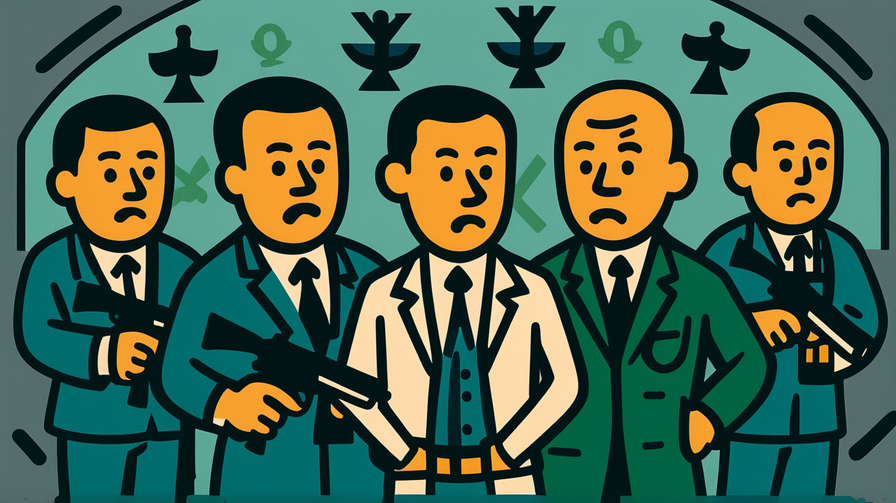[Disclaimer] This article is reconstructed based on information from external sources. Please verify the original source before referring to this content.
News Summary
The following content was published online. A translated summary is presented below. See the source for details.
The United States government has announced sanctions against the leaders of Tren de Aragua (TdA), a criminal organization that started in Venezuela and is now classified as a Foreign Terrorist Organization. The main target is Hector Rusthenford Guerrero Flores, known as “Niño Guerrero,” who has led the group for over 20 years. The State Department is offering a $5 million reward for information that helps capture him. Another leader, Yohan Jose Romero (called “Johan Petrica”), who helped start the gang, has a $4 million bounty on his head. Five other TdA leaders are also facing sanctions. These criminals are involved in serious crimes including drug trafficking, human smuggling, human trafficking, forcing people to pay them money (extortion), hurting women and children, and hiding illegal money. The US government says it’s taking these steps to protect Americans and stop violent crime across North and South America.
Source: U.S. Department of State
Our Commentary
Background and Context

Tren de Aragua began as a prison gang in Venezuela’s Tocorón prison around 2012. What started as a group controlling activities inside one prison has grown into one of South America’s most dangerous criminal organizations. The gang got its name from the Venezuelan state of Aragua, where the prison is located. Over the years, as Venezuela’s government became weaker and millions of people fled the country due to economic problems, TdA members spread across Latin America. They now operate in Colombia, Peru, Chile, Ecuador, and have even been spotted in US cities like New York, Chicago, and Miami.
The gang uses extreme violence to control territories and has created a network that profits from human misery. They force migrants fleeing Venezuela to pay them for “protection” during dangerous border crossings, and many who can’t pay become victims of trafficking or worse.
Expert Analysis
Security experts explain that sanctions are one of the most powerful tools the US government has against international criminals. When someone is sanctioned, their bank accounts in the US are frozen, Americans can’t do business with them, and they can’t travel to the United States. This makes it much harder for criminals to move money or expand their operations.
The Foreign Terrorist Organization (FTO) designation is especially serious. It means that anyone who provides support to TdA – even just sending them money – could face up to 20 years in prison. This classification puts TdA in the same category as groups like ISIS or al-Qaeda, showing how seriously the US government views this threat.
The multi-million dollar rewards through the Transnational Organized Crime Rewards Program are designed to encourage people with inside information to come forward. These programs have successfully led to the capture of many dangerous criminals worldwide.
Additional Data and Fact Reinforcement
According to law enforcement data, TdA has over 5,000 active members across multiple countries. In 2024 alone, the gang was linked to:
– Over 100 kidnappings in Colombia
– Multiple human trafficking rings affecting thousands of migrants
– Drug shipments worth hundreds of millions of dollars
– Extortion schemes targeting Venezuelan refugees in at least 8 countries
The US Department of Justice reports that TdA-related crimes in American cities increased by 300% between 2022 and 2024. The gang often targets other immigrants from Venezuela, knowing they might be afraid to report crimes to police.
Related News
This action follows several recent developments in the fight against transnational crime:
– In January 2025, Colombia arrested 47 suspected TdA members in a major operation
– Chile declared a state of emergency in northern regions due to TdA violence in December 2024
– The US created a special task force to combat Venezuelan gangs in November 2024
– Peru expelled over 200 TdA members back to Venezuela throughout 2024
International cooperation has increased, with 12 countries now sharing intelligence about TdA movements and activities through a special database.
Summary

The sanctioning of TdA leadership represents a significant escalation in the international fight against this criminal organization. By combining financial sanctions, terrorist designations, and substantial reward offers, the US is using every available tool to dismantle this violent gang.
However, experts warn that TdA’s deep roots in multiple countries mean this fight will be long and difficult. The gang has shown an ability to adapt and survive previous crackdowns. Success will require continued cooperation between countries and sustained pressure on all levels of the organization. For now, these sanctions send a clear message: the international community will not tolerate criminal organizations that prey on vulnerable migrants and spread violence across borders.
Frequently Asked Questions
Q: What does it mean when someone is “sanctioned”?
A: Sanctions are like a financial punishment. The person can’t use American banks, their US property is frozen, and Americans can’t do business with them. It’s meant to make it very hard for criminals to operate.
Q: How do reward programs work?
A: If someone provides information that directly leads to the arrest or conviction of these criminals, they can receive up to the amount offered. The informant’s identity is kept secret for their safety.
Q: Why is this gang considered a terrorist organization?
A: TdA uses violence and fear to control territories and populations, similar to terrorist groups. They attack civilians, including migrants and refugees, to achieve their criminal goals.
Q: Can these criminals still operate despite sanctions?
A: Yes, but it becomes much harder. They might try to use other countries’ banking systems or fake identities, but sanctions significantly limit their options and make them easier to track.


